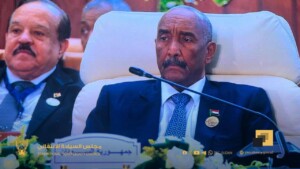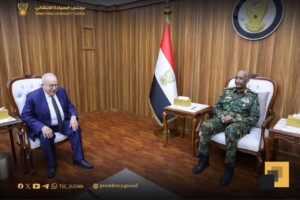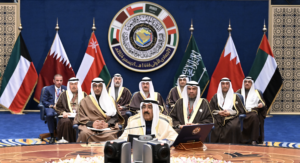Sudan’s president orders compensation for September protest victims
The president of Sudan directed the Ministry of Justice to compensate the families of the victims of the protests that broke out in Khartoum in September 2013. He also resolved to “punish the aggressors” for the demonstrations, in which he claims about 80 people were killed. A solidarity committee still demands an independent investigation into the protests.
The president of Sudan directed the Ministry of Justice to compensate the families of the victims of the protests that broke out in Khartoum in September 2013. He also resolved to “punish the aggressors” for the demonstrations, in which he claims about 80 people were killed. A solidarity committee still demands an independent investigation into the protests.
Human rights organisations stated that at least 200 people were killed at the time in Khartoum, when security forces violently repressed the protests aimed against the government’s decision to lift fuel subsidies.
After a meeting with President Omar Al Bashir on Monday, Sudan’s Justice Minister Nur Hassan Awad said that the president asked that perpetrators who attacked state property be prosecuted. Al Bashir’s directives included, according to the Sudan News Agency, compensation of the investors whose businesses suffered damage as a result of the protests.
Following the announcement, the National Committee of Solidarity with victims of the September protests immediately renewed its demand for a formation of an independent committee to investigate and bring those involved in the killings to trial.
The September 2013 demonstrations were the most violent against the current government since it assumed power in 1989.
Investigation committee
The chairman of the Committee, Siddig Yousef, told Radio Dabanga: “Last year a decision was issued by the [UN] Human Rights Council in Geneva asking the Government to submit a report at a meeting next September, but nothing has been heard about forming such a Committee… The Minister of Justice has acknowledged before Parliament that no committee for investigation has been formed so far.”
Yousef wondered what needs to be done “to ease the suffering of the families of the martyrs”. He stressed that the formation of an independent inquiry committee is therefore a fundamental issue. The Solidarity Committee plans to discuss the president’s decision with these families and the wounded victims, and then take the necessary action. It announced the preparation of a memorandum for the UN Security Council in April this year.
Violent repression
In September 2013, the government’s decision to lift subsidies on fuel sparked violent demonstrations in Khartoum which faced forceful repression by security forces, resulting in the deaths of about 200 people, according to the statistics of international human rights organisations such as Human Rights Watch and Amnesty International. The Sudanese government, however, claims the death toll among the protestors did not exceed 80.
As a response, the National Consensus Forces (NCF, an alliance of opposition parties) formed the Solidarity Committee with the aim of providing mental, legal, and material support to the families of demonstrators killed in the country.
The government has not published any a report on the incidents so far, while in May 2014 the Ministry of Justice denied the formation of a committee to investigate the incidents that accompanied the protests.
The then undersecretary of the Ministry said in his statement to Parliament: “We have not formed a committee to investigate the incidents, as the Government termed what happened as sabotage.”
Related articles:
Sudan security threatens families of protest victims (September 21, 2014)
Solidarity Committee hands memo to Sudan’s HRs Commission (July 23 2014)
Photos: Protests across Sudan (September 27, 2013)
Sudan medics count increasing number of deaths from police violence against demonstrators (September 26, 2013)











 and then
and then